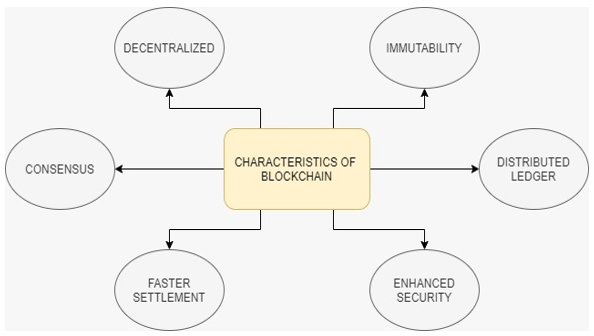Bittrack-A Decentralized Trust Based Identity and Access Management Approach
Keywords:
Blockchain, Identity, Management, Access Management, SecurityAbstract
In this paper, a decentralized Identity and Access Management (IAM) application named “Bittrack” has been proposed. The advent of Blockchain technology as a juggernaut in the world of innovations has tagged on with itself revolutionary ways of handling identity on digital platforms. In this paper we propose a high-level architecture of the implemented dapp written in Vuejs that interacts with the Ethereum blockchain on a public test net. With an aim towards building a better model our system follows a more human centric approach for managing of identities using its own consensus mechanism. Later into the paper, we have shown how the reputation of the user can uncover the various undiscussed dynamics of an ideal identity management system. Therefore, the requirements for scalability of our system are far less stringent in comparisons to the current proposed models and thereby making our system to function as an independent model to manage the identities of the user in a highly secure and an efficient manner.
Downloads
References
S. Nakamoto, “Bitcoin: A peer-to-peer electronic cash system,” 2019.
J. Lee and S. Member, “BIDaaS : Blockchain Based ID As a Service,” IEEE Access, vol. 6, pp. 2274–2278, 2018.
B. Leiding and A. Norta, “Mapping requirements specifications into a formalized blockchain-enabled authentication protocol for secured personal identity assurance,” in International Conference on Future Data and Security Engineering, 2017, pp. 181–196.
V. L. Lemieux, “Trusting records: is Blockchain technology the answer?,” Records Management Journal, vol. 26, no. 2, 2016.
A. Josang, M. AlZomai, and S. Suriadi, “Usability and privacy in identity management architectures,” in ACSW Frontiers 2007: Proceedings of 5th Australasian Symposium on Grid Computing and e-Research, 5th Australasian Information Security Workshop (Privacy Enhancing Technologies), and Australasian Workshop on Health Knowledge Management and Discovery, 2007, pp. 143–152.
B. Faber, G. Michelet, N. Weidmann, R. R. Mukkamala, and R. Vatrapu, “BPDIMS:A blockchain-based personal data and identity management system,” Proceedings of the Annual Hawaii International Conference on System Sciences, vol. 2019-Janua, pp. 6855–6864, 2019.
U. La, S. Bcn, D. A. Filvà, F. J. García, and M. A. Forment, “Privacy and identity management in Learning Analytics processes with Blockchain,” 2018.
R. Heck, J. Torstensson, Z. Mitton, and M. Sena, “UPORT : A PLATFORM FOR SELF-SOVEREIGN IDENTITY,” 2017.
A. Azaria, A. Ekblaw, T. Vieira, and A. Lippman, “Medrec: Using blockchain for medical data access and permission management,” in 2016 2nd International Conference on Open and Big Data (OBD), 2016, pp. 25–30.
T. Rathee and P. Singh, “A systematic literature mapping on secure identity management using blockchain technology,” Journal of King Saud University-Computer and Information Sciences, vol. 34, no. 8, pp. 5782–5796, 2022.
S. Khanum and K. Mustafa, “A systematic literature review on sensitive data protection in blockchain applications,” Concurrency and Computation: Practice and Experience, vol. 35, no. 1, p. e7422, 2023.
K. Cameron, “The laws of identity,” Microsoft Corp, vol. 12, pp. 8–11, 2005.
P. Dunphy and F. A. P. Petitcolas, “A first look at identity management schemes on the blockchain,” IEEE Security & Privacy, vol. 16, no. 4, pp. 20–29, 2018.
D. Mingxiao, M. Xiaofeng, Z. Zhe, W. Xiangwei, and C. Qijun, “A review on consensus algorithm of blockchain,” in 2017 IEEE international conference on systems, man, and cybernetics (SMC), 2017, pp. 2567–2572.
Q. Stokkink, G. Ishmaev, D. Epema, and J. Pouwelse, “A truly self-sovereign identity system,” in 2021 IEEE 46th Conference on Local Computer Networks (LCN), 2021, pp. 1–8.
X. Wang, Z. Tan, and S. Wang, “An Identity Management System Based on Blockchain,” 2017 15th Annual Conference on Privacy, Security and Trust (PST), pp. 44–4409, 2017.

Downloads
Published
How to Cite
Issue
Section
License
Copyright (c) 2023 Garv Juneja, Raghav Naswa

This work is licensed under a Creative Commons Attribution-ShareAlike 4.0 International License.
All papers should be submitted electronically. All submitted manuscripts must be original work that is not under submission at another journal or under consideration for publication in another form, such as a monograph or chapter of a book. Authors of submitted papers are obligated not to submit their paper for publication elsewhere until an editorial decision is rendered on their submission. Further, authors of accepted papers are prohibited from publishing the results in other publications that appear before the paper is published in the Journal unless they receive approval for doing so from the Editor-In-Chief.
IJISAE open access articles are licensed under a Creative Commons Attribution-ShareAlike 4.0 International License. This license lets the audience to give appropriate credit, provide a link to the license, and indicate if changes were made and if they remix, transform, or build upon the material, they must distribute contributions under the same license as the original.





